When an emergency hits and your credit is far from perfect, finding quick funding can feel impossible. The stress of an unexpected expense like a medical bill, car repair, or rent deadline only grows when lenders turn you down or quote sky-high rates.
But even with bad credit, you still have real options. Some lenders and programs specialize in helping borrowers access short-term funds responsibly, while others offer safer, lower-cost alternatives that won’t trap you in debt.
The key is knowing where to look, what to avoid, and how to improve your chances before applying. In this guide, we’ll walk through the most practical ways to secure money fast during an emergency even with a low credit score and how to make sure the loan helps your situation, not hurts it.
Key Takeaways
What to Know
- You still have options: even with bad credit, lenders like credit unions, online platforms, and employer programs can provide legitimate short-term funding.
- Approval depends on more than your score: income stability, debt-to-income ratio (DTI), and documentation carry more weight than credit history alone.
- Avoid “guaranteed approval” traps: lenders that promise instant funding or charge upfront fees are almost always predatory.
- Prequalification helps you compare safely: soft-credit prequalification lets you check real rates and terms without hurting your score.
- Secured or community-based options are safer: savings-backed, employer, or nonprofit programs often offer lower rates and flexible repayment plans.
- Borrow for essentials only: emergency loans should cover true necessities — not wants — to prevent deeper debt.
- Repayment builds credit: consistent on-time payments on legitimate loans can help you rebuild credit within months.
- Preparation beats panic: the best way to handle the next emergency is to build a small savings buffer once this one is under control.
Disclaimer: This site contains affiliate links. If you make a purchase, we may earn a commission at no extra cost to you.
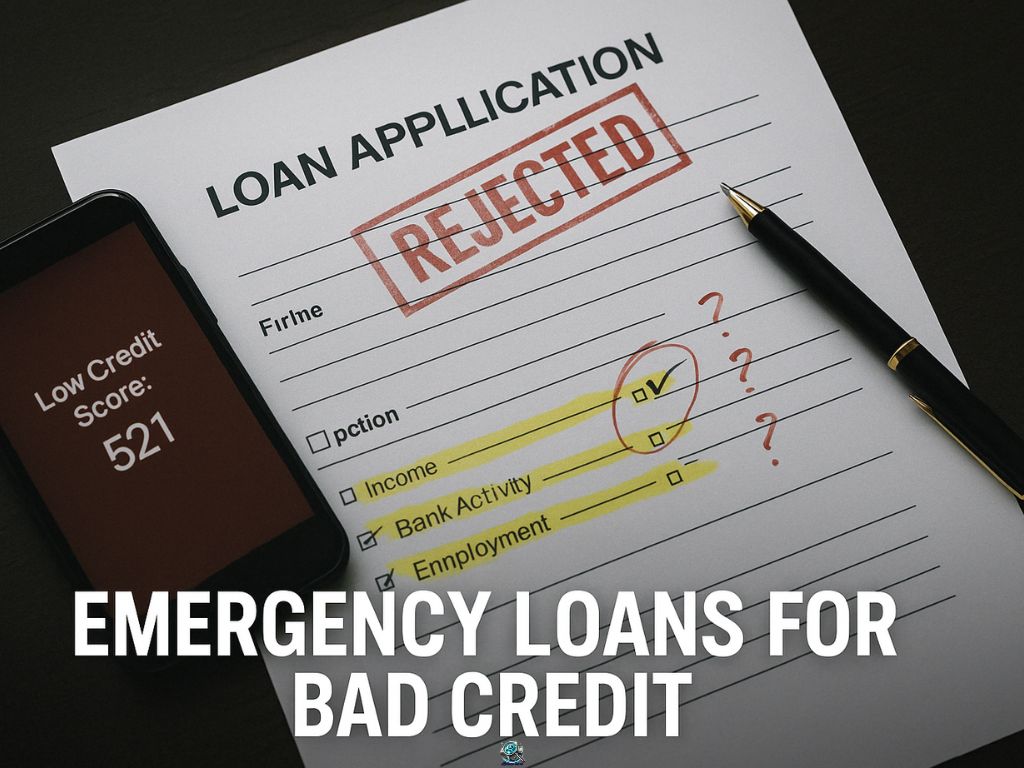
What to Expect When Applying for an Emergency Loan with Bad Credit
Applying for a loan in an emergency when your credit is shaky means walking a tight line between speed and safety. The process looks simple on the surface: fill out a form, get a decision, receive funds but what happens behind the scenes determines your approval odds, interest rate, and how much you’ll actually get.
Here’s what to expect before you hit “apply.”
1. Smaller Loan Amounts and Higher Rates
With bad credit, most lenders limit exposure. Expect smaller loan amounts often between $500 and $5,000 and higher interest rates, typically 18% to 36% APR depending on the lender and your income stability.
These rates may sound steep, but they’re still far safer than payday or “instant cash” loans that can exceed 300% APR.
2. Proof of Income Matters More Than Credit Score
When credit is weak, lenders focus heavily on income verification. A steady paycheck or consistent deposit record can offset poor credit history.
Be ready to provide:
- Recent pay stubs or direct deposit statements
- Bank statements showing stable cash flow
- Proof of employment or self-employment income
If you can show reliability even without great credit you’re more likely to qualify and receive better terms.
3. Fast Decisions, But Not Always Instant Funding
Many online lenders advertise same-day approval, but real funding time varies.
- Online lenders: typically 1–2 business days
- Credit unions: 2–5 business days
- Banks: 3–7 business days (especially if manual review is needed)
Speed often depends on how quickly you verify income and identity so have documents ready before applying.
4. Soft Credit Checks First, Hard Pulls Later
Prequalification tools use soft inquiries that don’t affect your score. Once you submit a full application, the lender performs a hard inquiry, which may lower your score by a few points temporarily.
Pro Tip: Prequalify first with multiple lenders to compare rates and avoid unnecessary hard pulls.
5. Expect Direct Deposit, But Read the Details
Most legitimate lenders fund directly into your bank account. Be cautious of anyone asking for prepaid cards, gift cards, or “account verification fees.”
Those are classic red flags of scams targeting borrowers under stress.

📊 Emergency Loan Snapshot for Bad Credit Borrowers (2025)
A quick overview of what to realistically expect when applying for an emergency loan with bad credit.
| Factor | Typical Range / Expectation | What Helps Improve It |
|---|---|---|
| Loan Amount | $500 – $5,000 | Stable income and verified employment |
| APR Range | 18% – 36% | Strong income-to-debt ratio, co-signer |
| Approval Time | 1 – 3 business days | Complete documentation upfront |
| Funding Speed | Same day – 5 days | Online lender, verified account |
| Credit Impact | Small dip from hard inquiry | Use prequalification first |
💡 Pro Tip: The fastest approvals go to borrowers who combine verified income, accurate documentation, and prequalification through trusted lenders.
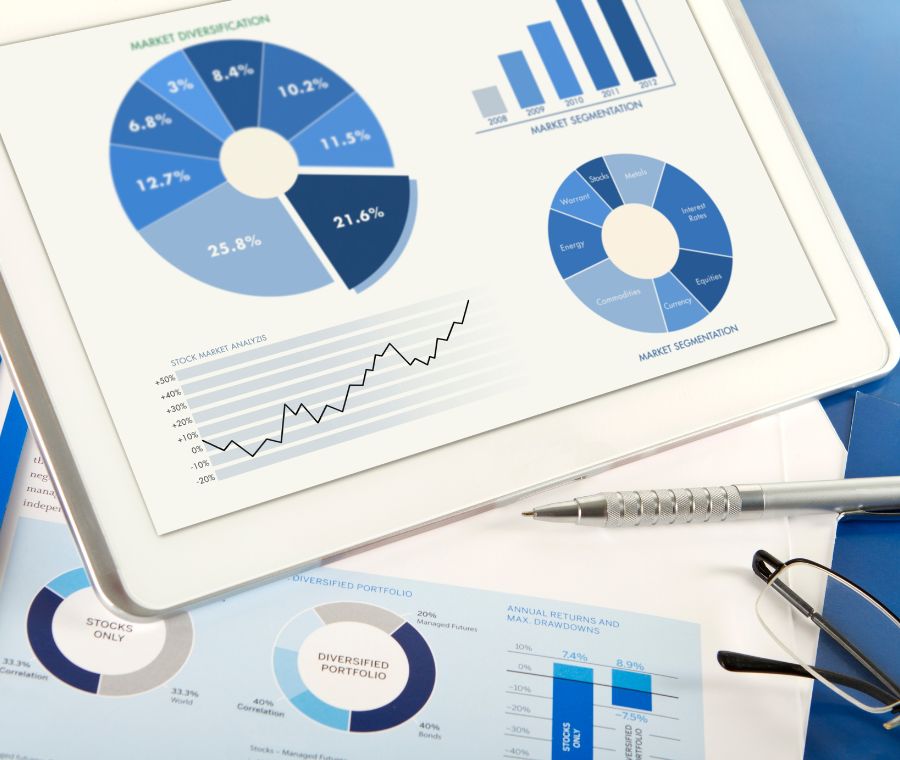
Best Loan Options During an Emergency (Even with Bad Credit)
When money is tight and time is short, it’s tempting to take whatever offer promises cash the fastest. But in financial emergencies, speed without structure can lead to long-term debt traps.
Fortunately, there are several legitimate options that balance fast funding with fairness even for borrowers with less-than-perfect credit.
Let’s break down which ones are worth exploring first.
1. Credit Union Emergency or Payday Alternative Loans (PALs)
Credit unions are often the most forgiving lenders for bad-credit borrowers. Many offer small emergency loans or PALs with capped interest rates (under 28% APR) and transparent terms.
Unlike payday loans, these are reported to credit bureaus, so consistent repayment can actually help rebuild your credit.
Best for: Members with limited or poor credit who need quick access to smaller amounts ($200–$2,000).
Timeline: Funding in 1–3 business days.
💡 Tip: You can often join a credit union through a small donation or community affiliation no prior relationship needed.
2. Online Lenders Specializing in Bad Credit
Some online lenders cater specifically to borrowers rebuilding credit. While rates are higher than traditional loans, many offer fast prequalification, next-day deposits, and no collateral requirements.
Look for lenders that:
- Display full APR ranges upfront
- Offer flexible repayment terms (12–36 months)
- Allow soft credit checks for rate previews
Best for: Borrowers needing $1,000–$10,000 fast with verifiable income.
Caution: Avoid any site promising “guaranteed approval” or asking for upfront fees.
3. Secured Personal Loans (If You Have Collateral)
If you have assets like a paid-off car or savings account, a secured personal loan can provide lower rates and higher approval odds.
You’ll need to pledge the asset as collateral, but this can significantly reduce your APR compared to unsecured options.
Best for: Borrowers with bad credit but reliable collateral.
Funding Time: 2–5 business days (varies by lender).
⚠️ Caution: Only use assets you can afford to part with temporarily. Losing essential property can worsen a financial emergency.
4. Employer-Based or Community Assistance Loans
Before borrowing from a lender, check if your employer, local nonprofit, or community organization offers short-term financial help.
Many employers now offer earned wage access programs or payroll advances letting you access part of your paycheck early without interest.
Best for: Employees or community members facing immediate needs like rent or medical costs.
Advantage: No credit check, often zero or minimal fees.
5. Credit Card Hardship or Balance Transfer Options
If you already have a credit card, your issuer may offer a hardship program that temporarily lowers your interest or extends payments.
Alternatively, if your credit is recovering, a 0% APR balance transfer offer can help consolidate urgent expenses interest-free for several months.
Best for: Short-term emergency funding when repayment is realistic within a few months.
Note: Always pay off promotional balances before standard rates resume (usually 18–25%).

📊 At a Glance: Reliable Emergency Loan Alternatives (2025)
A snapshot of the safest borrowing options when credit is bad and time is tight.
| Option | Ideal Borrower | Loan Range | Funding Speed | Typical APR | Risk Level |
|---|---|---|---|---|---|
| Credit Union PALs | Fair or poor credit | $200 – $2,000 | 1–3 days | Up to 28% | Low |
| Online Lenders | Rebuilding credit | $1,000 – $10,000 | 1–2 days | 18% – 36% | Medium |
| Secured Loans | Collateral available | $1,000 – $25,000 | 2–5 days | 8% – 20% | Medium–High |
| Employer/Community Aid | Emergency needs | $200 – $1,500 | Same day | 0% – 10% | Very Low |
| Credit Card Options | Existing cardholders | Varies | Same day | 0% – 25% | Medium |
💡 Smart Takeaway: The best alternative depends on your balance of speed, credit, and risk comfort. Credit unions and employer-based aid often combine speed with safety.
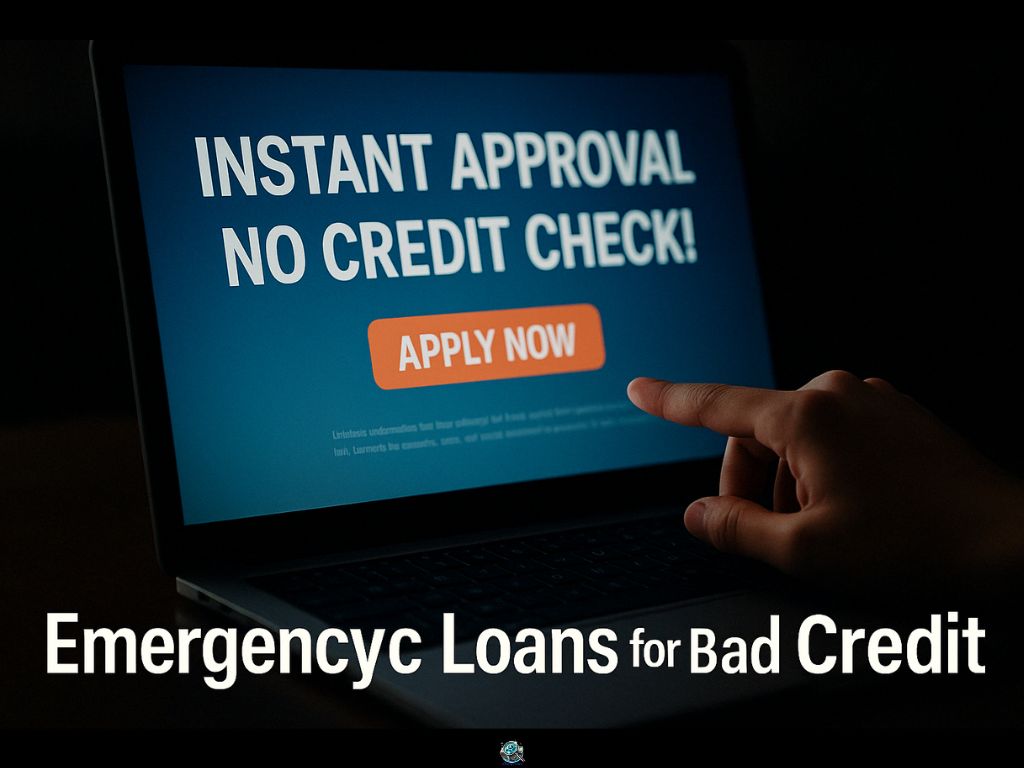
How to Improve Your Approval Odds During an Emergency
In a financial emergency, you may not have time to rebuild your credit score but you can make small, strategic moves that improve how lenders see you. Even a few quick adjustments before applying can raise your approval odds or secure you a better rate.
Here’s what to focus on when every day (and dollar) counts.
1. Choose the Right Lender for Your Situation
Every lender has its own criteria. Applying where your profile fits best saves time and avoids unnecessary rejections.
- Credit unions: Better for smaller loans and lower scores.
- Online lenders: Faster approval, flexible underwriting, higher APRs.
- Community lenders: Ideal for emergency, short-term help.
💡 Quick Tip: Look for lenders that specialize in “bad credit” or “fair credit” applicants their systems are designed to evaluate stability and income, not just a credit number.
2. Verify Your Income and Bank Account Ahead of Time
Most lenders want proof that you can handle repayment right now. Having pay stubs, tax returns, or bank statements ready cuts processing time and strengthens your application instantly.
If your income varies (freelance or gig work), show three months of consistent deposits. Many lenders will count that as stable income even without a traditional paycheck.
3. Lower Your Debt-to-Income Ratio (DTI) Quickly
Lenders want to see that you have breathing room in your budget. Paying off even one small balance before applying can make a visible difference.
📊 Example: If you earn $3,000 per month and owe $1,200 in total debt payments, your DTI is 40%.
Paying off a $300 balance drops it to 30%, a level many lenders consider low-risk even if your credit score isn’t ideal.
💡 Pro Tip: Avoid taking on new debt or credit inquiries right before applying. Lenders read that as instability under pressure.
4. Use Prequalification Tools to Compare Offers
Don’t apply blindly. Use prequalification tools from multiple lenders to check your estimated rates without affecting your credit score.
Comparing just three offers can save hundreds of dollars in interest and it gives you leverage when negotiating terms.
⚙️ Note: Once you choose your preferred lender, apply within a 14-day window so multiple inquiries count as one on your credit report.
5. Consider a Co-Signer or Joint Application
Adding someone with stronger credit can immediately improve your odds and lower your rate. Lenders view it as shared responsibility, meaning less risk.
Only choose a co-signer who fully understands the obligation missed payments affect both credit reports equally.
6. Avoid Payday or “No Credit Check” Lenders
When you’re in a crisis, the worst decision is often the fastest one. Payday and “instant cash” lenders prey on urgency, charging triple-digit APRs and short repayment windows that can trap you in cycles of debt.
Stick to verified, regulated lenders and check that they’re licensed in your state before applying.

📋 Quick Checklist: Fast Ways to Strengthen Your Application
Quick, actionable steps that can improve approval odds and loan terms — most take less than a day to complete.
| Step | What It Does | Time to Complete |
|---|---|---|
| Gather proof of income | Builds lender confidence | 15–30 mins |
| Pay down small debts | Lowers DTI instantly | 1–2 days |
| Prequalify with 3 lenders | Compares rates safely | 10 mins each |
| Add a co-signer | Improves approval odds | 1 day |
| Avoid new credit pulls | Keeps score stable | Ongoing |
💡 Smart Tip: Lenders reward readiness. Even small steps like gathering proof or prequalifying early can shift your application from borderline to approved.

Red Flags to Avoid During an Emergency
When money is tight and time is short, it’s easy to overlook warning signs that a loan offer isn’t legitimate.
Bad-credit borrowers are often targeted by lenders who exploit urgency, using hidden fees or fake promises to trap people in long-term debt.
Knowing what to watch for can save you hundreds and protect your personal information from fraud.
1. “Guaranteed Approval” or “No Credit Check” Loans
Any lender promising guaranteed approval is hiding something. Every legitimate lender, even flexible ones, evaluates your income, debt, and payment history. “No credit check” offers usually come with extreme interest rates or illegal contract terms that ignore borrower protection laws.
💡 Quick Test: If approval seems instant, fees appear first, or there’s no request for identity verification walk away.
2. Upfront Payments or “Processing Fees”
Legitimate lenders never require payment before issuing a loan. If someone asks for a “security deposit,” “insurance fee,” or “expedited funding charge,” it’s likely a scam.
According to the Federal Trade Commission (FTC, 2025), upfront-fee loan scams remain one of the top five financial fraud complaints in the U.S. costing victims over $1 billion annually.
✅ Rule of Thumb: Real lenders deduct origination fees from your loan amount, never ask you to send money before disbursement.
3. Hidden or Inflated APRs
Predatory lenders often advertise low “starting rates,” but the fine print reveals APRs exceeding 100%. Always check the full annual percentage rate (APR) and total repayment amount before signing.
Look for transparent disclosures:
- Fixed interest rate
- Total cost of the loan
- Monthly payment schedule
- Any late or prepayment fees
If those details aren’t visible on the lender’s official website or prequalification form avoid applying.
4. Fake Lender Websites or Unlicensed Operations
Fraudulent lenders frequently copy the names of real banks or create fake online portals. Always confirm licensing before applying, especially if you found the offer on social media or through text/email.
🔍 How to Verify a Lender’s Legitimacy
- Search the lender in the CFPB Consumer Complaint Database or your state’s financial regulator site.
- Check for a physical address and customer service phone number.
- Look for HTTPS encryption on the website (a padlock icon).
- Read reviews from verified sources, not testimonials posted on the lender’s own page.
💡 Pro Tip: If you can’t find a lender’s license number within minutes, it’s not worth the risk.
5. Pressure Tactics or Urgency Traps
Legitimate lenders don’t use countdown timers, texts urging you to “act now,” or repeated calls demanding a same-day decision. Predatory ones rely on panic to rush you past the fine print.
Instead, pause and compare. Even during an emergency, you have time to verify.
A short delay to read disclosures can prevent months of debt stress.
Next: read our guide “How to Get Approved Even With Bad Credit”.
📋 Spotting Predatory Emergency Loan Offers at a Glance
Key warning signs that indicate an emergency loan offer may be unsafe or predatory.
| Red Flag | What It Looks Like | Why It’s Risky | What to Do Instead |
|---|---|---|---|
| Guaranteed approval | “No credit check 100% acceptance!” | Likely scam or illegal loan | Only apply with verified, licensed lenders |
| Upfront fees | “Pay $50 to secure your funds” | Advance-fee fraud | Walk away; real lenders deduct fees from funds |
| Hidden APRs | “Rates as low as 5%*” | Actual APR 100%+ | Ask for full APR and total cost disclosure |
| Fake websites | No license or physical office | Identity theft risk | Verify through CFPB or state registry |
| High-pressure offers | “Apply now — expires in 30 minutes” | Forces bad decisions | Pause and compare at least two offers |
According to the Consumer Financial Protection Bureau (CFPB, 2025), more than 40% of scam-related emergency loan complaints involved lenders using “guaranteed approval” language or requiring upfront payment. Borrowers who verified lender licensing through official databases were 70% less likely to report fraud.
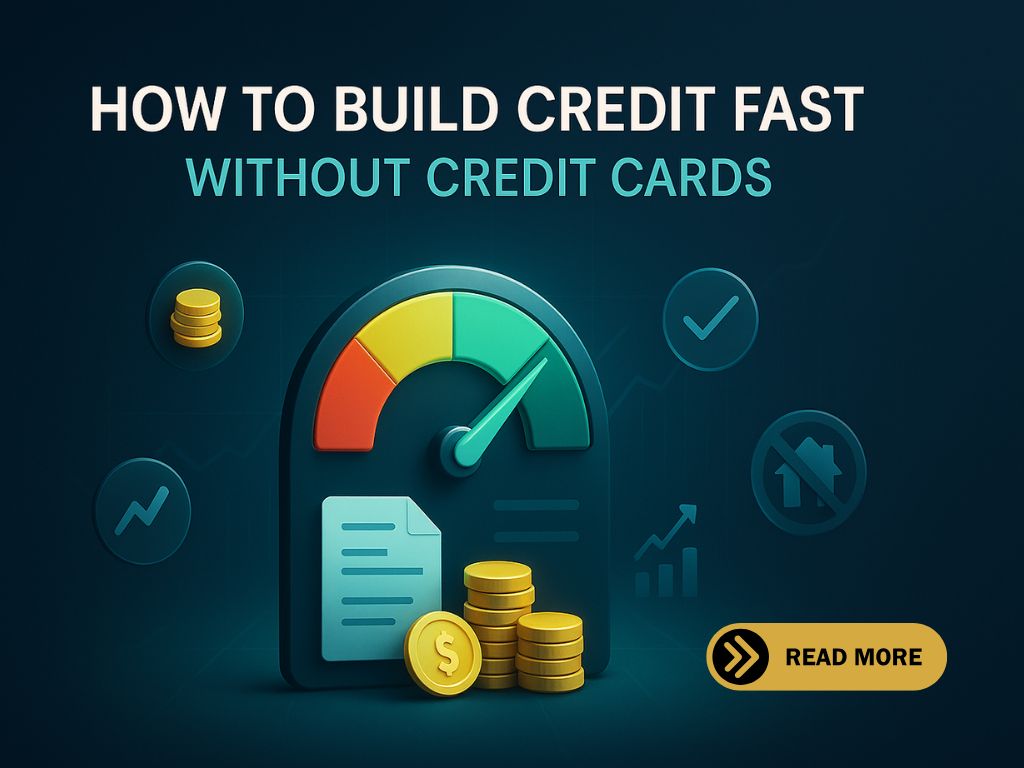
What to Do After You’re Approved
Getting approved for an emergency loan especially with bad credit can feel like a relief. But what happens next determines whether the loan helps you recover or pushes you deeper into debt.
A smart post-approval plan protects your credit, your finances, and your peace of mind.
1. Use the Funds for Essentials Only
When the money hits your account, it’s easy to start covering everything that feels urgent.
Instead, pause and rank your needs. Focus on immediate essentials: rent, utilities, medical bills, transportation, or safety repairs.
💡 Pro Tip: Create a short list of “must pay this week” items before disbursement. It keeps emotion out of spending decisions.
2. Set Up a Payoff Plan Right Away
Even small loans can become expensive if left unmanaged.
Before your first payment is due:
- Confirm your payment schedule and due date.
- Set up autopay to avoid missed payments.
- Track the total payoff amount, not just the monthly bill.
If your budget allows, pay a little extra toward the principal each month. That small step can shorten your loan term and reduce total interest.
📘 Example: Paying $25 extra on a $2,000 loan at 24% APR can shorten your term by a month and save roughly $40 in interest.
3. Monitor Your Credit Progress
Emergency loans can be a turning point for bad-credit borrowers if managed well.
Most reputable lenders report payment history to the major credit bureaus (Experian, Equifax, TransUnion).
- ✅ Each on-time payment helps rebuild your credit mix and payment record.
- ⚠️ A single missed payment, however, can undo months of progress.
💡 Insight: Set reminders 3–5 days before your due date or align payments with your paycheck schedule to stay consistent.
4. Avoid Taking Another Loan to Repay the First
This is one of the most common mistakes borrowers make.
If you can’t keep up with payments, don’t apply for another high-interest loan to “catch up.”
Instead:
- Contact your lender early, many offer short-term deferments or hardship adjustments.
- Seek local credit counseling to review your budget and options.
- Reassess non-essential expenses before taking on new debt.
According to the National Foundation for Credit Counseling (NFCC, 2025), borrowers who requested hardship plans within 30 days of financial trouble avoided delinquency 60% more often than those who waited until default.
5. Start Building an Emergency Fund
Once your loan is under control, begin saving even small amounts toward a future emergency fund.
Set a modest target $25 per paycheck is enough to start breaking the cycle of crisis borrowing.
When the next unexpected expense hits, you’ll have options that don’t depend on credit at all.
📘 Goal: Aim for $500 in a basic emergency fund before tackling larger savings goals.

📊 Sample Emergency Loan Payoff Plan (3–6 Months)
A realistic short-term payoff example showing how consistent payments and small extra contributions can accelerate progress and improve credit health.
| Month | Payment Amount | Extra Toward Principal | Remaining Balance | Notes |
|---|---|---|---|---|
| 1 | $220 | $0 | $1,780 | Set up autopay; confirm reporting |
| 2 | $220 | $25 | $1,535 | Paid extra toward principal |
| 3 | $220 | $25 | $1,290 | On-time payments reported |
| 4 | $220 | $25 | $1,045 | Credit score improving |
| 5 | $220 | $25 | $800 | Consider paying ahead |
| 6 | $220 | $50 | $530 | Near payoff; save for emergency fund |
According to the Consumer Financial Protection Bureau (CFPB, 2025), borrowers who set up autopay and tracked repayment progress were 50% more likely to avoid late fees and saw credit scores improve by an average of 40 points within six months.
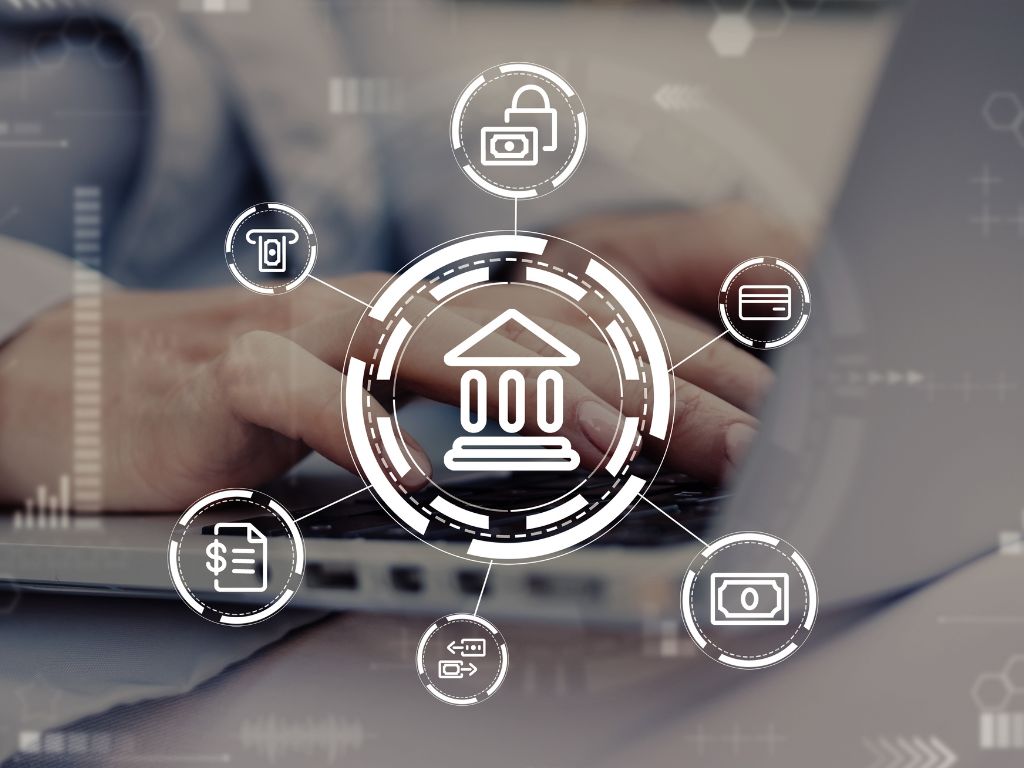
Alternatives If You Still Don’t Qualify
Even with preparation, not every emergency loan application gets approved especially if your credit history is thin or your income is unpredictable.
The good news: you still have other ways to access short-term financial relief without resorting to predatory lenders.
The key is to focus on safe, verifiable, low-cost alternatives that protect your credit and reduce future stress.
1. Secured Personal Loans
If your credit score is holding you back, offering collateral can make approval easier.
You can use a savings account, certificate of deposit (CD), or vehicle title to secure the loan.
Why it works: The collateral reduces lender risk, allowing for better rates and higher approval odds even when credit is below 600.
Be cautious: Don’t pledge assets you can’t afford to lose, such as your primary car or emergency savings.
💡 Smart Move: Start small. A savings-secured loan through your bank or credit union is often the lowest-risk way to build credit while accessing funds.
2. Credit-Builder Loans or Share-Secured Credit Cards
If your main goal is to rebuild credit (not cover a huge expense), a credit-builder product can help.
These loans hold the funds in a locked account while you make monthly payments. When you’ve paid it off, you get access to the balance and a stronger credit profile.
Why it helps: It establishes on-time payment history and improves your credit mix, both key scoring factors.
Bonus: Many credit unions now offer share-secured credit cards that function the same way but provide ongoing access to a small revolving limit.
3. Community and Nonprofit Assistance Programs
Many local and national organizations offer short-term financial help for specific emergencies such as medical bills, housing, or utility shutoffs.
Examples:
- 211.org: Connects you to verified local assistance programs.
- Community Action Agencies: Offer one-time emergency grants or rent support.
- Faith-based organizations: Often provide small, no-interest loans or direct payment assistance.
Why it matters: These programs rarely check credit and don’t charge interest. The main requirement is documentation of need.
💡 Pro Tip: Always verify nonprofits through CharityNavigator.org or official .gov listings to avoid scams.
4. Employer or Payroll Advance Programs
Some employers now offer paycheck advances or low-interest loans as part of their financial wellness benefits.
Advantages:
- No credit check.
- Funds often available within one business day.
- Repayments automatically deducted from future paychecks.
If your company doesn’t offer such a program, ask HR about third-party partners (like EarnIn or PayActiv) that provide employer-linked cash advances safely.
5. Borrowing from Trusted Family or Friends
While it’s never easy to ask for help, a short-term personal loan from someone you trust can be the safest option no credit check, no interest, and flexible terms.
Just handle it professionally:
- Put repayment terms in writing.
- Treat it like a formal loan, set clear dates and payment amounts.
- Communicate proactively if repayment might be delayed.
Handled well, this kind of loan can preserve relationships and provide breathing room without the cost of high-interest borrowing.

📊 At a Glance: Alternatives to Emergency Loans for Bad Credit
Safer short-term funding options designed to reduce risk while helping you rebuild credit and stay financially stable.
| Alternative Option | Ideal For | Key Advantage | Primary Drawback |
|---|---|---|---|
| Secured Personal Loan | Borrowers with assets | Easier approval, lower APR | Risk of losing collateral |
| Credit-Builder Loan / Secured Card | Rebuilding credit | Improves credit history | Delayed access to funds |
| Community / Nonprofit Aid | Urgent, essential needs | Often interest-free | Limited funding or eligibility |
| Employer Advance | Employees in cash crunch | Fast access, no credit check | May reduce next paycheck |
| Family or Friend Loan | Trust-based support | No interest, flexible terms | Risk to relationships |
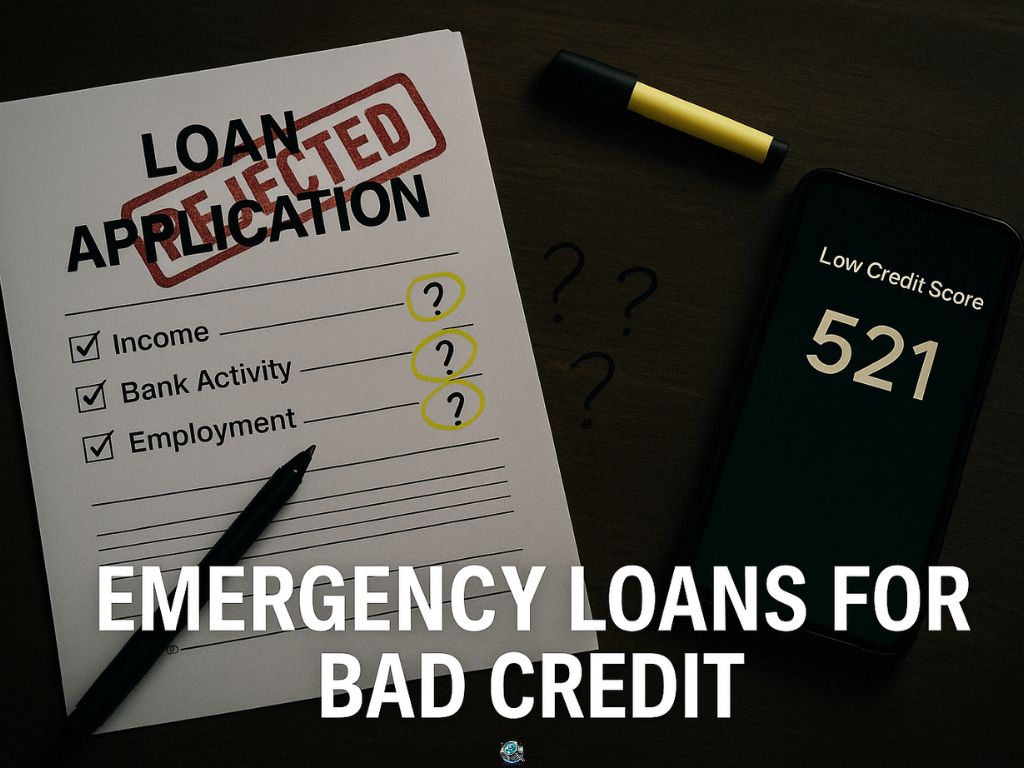
Conclusion
Facing an emergency when your credit isn’t perfect can feel overwhelming, but it doesn’t mean you’re out of options. The real challenge isn’t just finding a loan, it’s finding the right one, fast enough to help and safe enough to protect your future.
Bad-credit borrowers often get pushed toward high-risk choices, but as you’ve seen, there are better paths: credit unions, secured loans, employer advances, or even community-based aid that values stability over scores.
The difference between stress and progress comes down to one thing: control.
Control means slowing down long enough to read the terms, verify the lender, and borrow only what you can comfortably repay. It also means having a plan to rebuild after the crisis passes: paying on time, reducing debt, and creating a small safety cushion for next time.
Emergencies may be unpredictable, but your response doesn’t have to be. Borrow wisely, protect your assets, and use every loan decision as a step toward stronger financial footing.
Because getting through this one challenge the right way can set you up for fewer emergencies and better opportunities down the road.
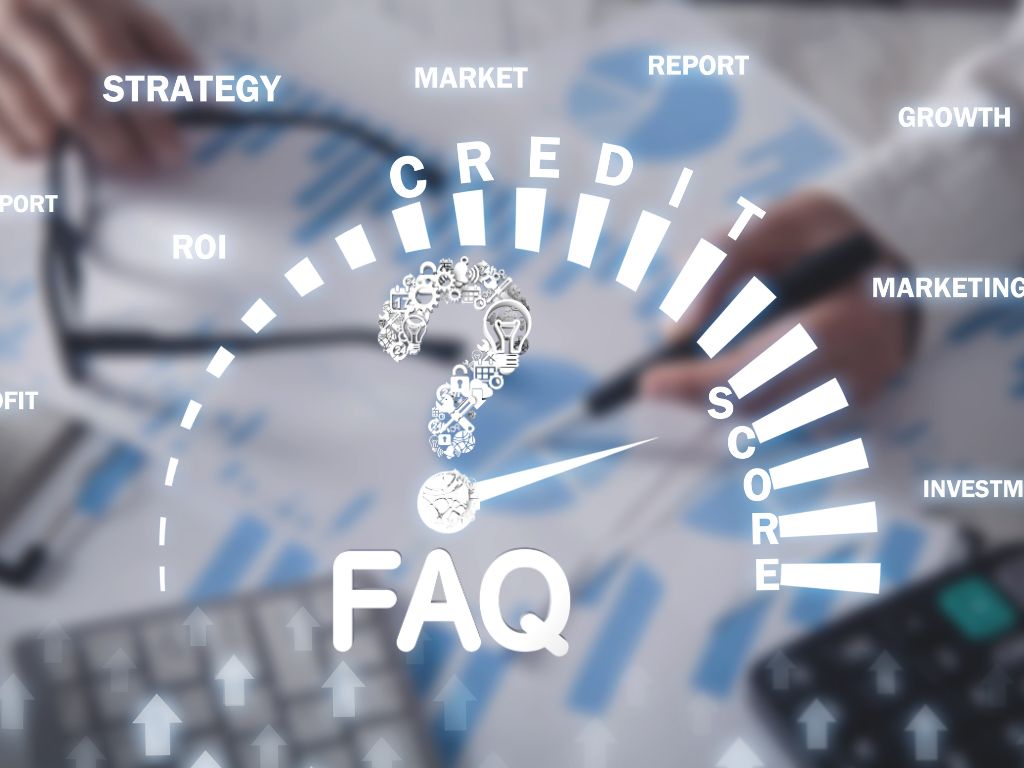
FAQs: Emergency Loans for Bad Credit
1. How fast can I get an emergency loan with bad credit?
Funding speed depends on the lender and your documentation. Online lenders may deposit funds within 24–48 hours, while credit unions and banks typically take 2–5 business days. If time is critical, prequalify first and choose lenders that support same-day processing after verification.
2. What’s the lowest credit score accepted for an emergency loan?
Some lenders consider applicants with scores as low as 500, especially if you can show consistent income and a manageable debt load. Credit unions and community-based lenders tend to be the most flexible for borrowers below 600.
3. Are secured loans safer than payday loans?
Yes, secured loans from legitimate institutions are far safer. They’re regulated, have capped rates, and report payments to credit bureaus. Payday loans, by contrast, often charge 200–400% APR and can trap borrowers in a repeat-debt cycle within weeks.
4. Can adding a co-signer help me qualify faster?
Absolutely. A co-signer with strong credit reduces the lender’s risk, which can speed approval and lower your interest rate. Just remember that your co-signer shares full responsibility for repayment any missed payment affects both credit reports.
5. What are the biggest red flags when searching for an emergency loan?
Avoid lenders that:
- Promise “guaranteed approval” or no credit checks
- Request upfront fees before funding
- Lack a verifiable business address or license
- Refuse to provide a written agreement
You can verify a lender’s legitimacy through your state financial regulator or the Consumer Financial Protection Bureau (CFPB) complaint database.
6. Can emergency loans actually help rebuild my credit?
Yes when used responsibly. If your lender reports to credit bureaus and you make every payment on time, you’ll strengthen your payment history, one of the most important credit score factors. Even small, consistent repayments can make a measurable difference within six months.
7. What should I do if I can’t get approved anywhere?
If you’ve been denied multiple times, pause applications to avoid additional credit pulls.
Focus on alternatives like:
- Credit union PALs (Payday Alternative Loans)
- Secured personal loans backed by savings or CDs
- Community assistance programs offering short-term support
You can also work on short-term fixes such as reducing your DTI or disputing credit report errors before reapplying.
8. How can I prepare for future emergencies without borrowing?
Start small. Set aside even $25 per paycheck into a separate account labeled “emergency fund.” Within a few months, you’ll have a cushion that can help you avoid borrowing altogether next time life surprises you.
0 Comments